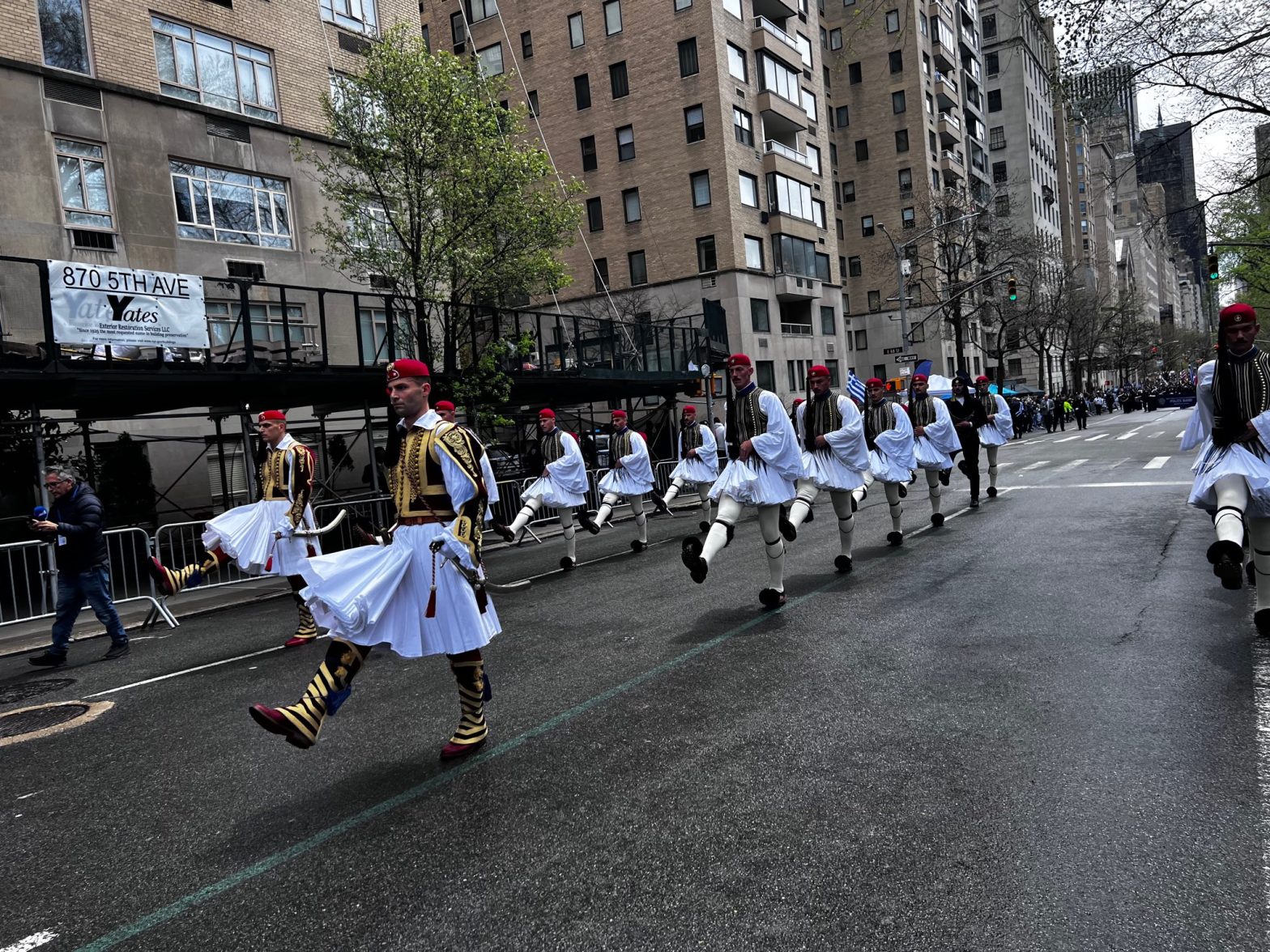General News
Meropi Kyriacou Honored as TNH Educator of the Year
NEW YORK – Meropi Kyriacou, the new Principal of The Cathedral School in Manhattan, was honored as The National Herald’s Educator of the Year.

In Greece they are just as passionate about football as they are in America – only in their game, which we call ‘soccer’, players cannot touch the ball or hit each other – it really is ‘foot’ ball.
They have special names for big matchups, however, they are not called ‘bowl’ games, but ‘derbies’, and they are ‘home-and-home’ series that occur during the regular season between the leagues’ great rivals. Indeed the complete phrase is ‘derby of the eternals’, i.e. ‘eternal rivals’. think ‘Giants-Eagles’ – or ‘Yankees-Red Sox’ and ‘Lakers-Celtics’ for that matter.
In Greece, on the weekend of February 24, another ‘derby of the eternals’ entered the history books that has not made us any wiser. It just added another episode to what we have experienced and seen on the field – but behind the scenes….
Back in the old days, back in the days of the purity of amateurism and the early years of professionalism, the field – in soccer it is the sacred ‘pitch’, the players, and the coaches were the Alpha and Omega. You knew that what happened on the field was what you saw. And all the reward and recognition they desired was the stands packed stands with the fans of both teams. Of course there were some exceptions, when the team presidents wanted to make some extra money and we saw… some ties in order to have a third game. But even in those cases the fans grasped what was going on and exacted punishment.
In recent years, however, the situation has gotten out of hand. We have the ‘front’, the pitch – with the coaches, the players, the referees – but we also have the ‘back’ stage, which consists of presidents and owners of the teams. Inside the lines, the protagonists have nothing to share among themselves and they give their all, fighting as best they can – in America they say “we left it all on the field.”
Look, for example, at the recent Derby of the Eternals at the renowned Georgios Karaiskakis stadium in Piraeus. Olympiacos was obviously better. They played more beautifully, more spectacularly – without a doubt they were wronged by the ‘sterile’ final score of 0-0.
On the other hand, Panathinaikos came in very passive, their players – with the exception of goalkeeper Alberto Brignoli – performed poorly and undoubtedly they were happy to get the draw.
But it was all just ‘window dressing’. What we saw on the pitch from the players is something that no longer characterizes Greek soccer. Where the Greeks’ beloved ‘balla’ is now really played is in the offices of the big stakeholders. That is where ‘the big man’ of the team makes his moves, in his offices, where his meetings take place to discuss his plans on how to gain or maintain the upper hand in the control of Greek soccer.
And the ‘big man’ firmly believes THAT is soccer. That is where all the ‘cooking’ for the next day takes place.
That’s why we see so much paper warfare – announcements, generated by the staffs of teams digging up the resume and history of every referee, not respecting laws and rules, not respecting any institution, having an ‘army’ of fans and journalists people believe are the foundation – and of course they are just making fun of them when they say they appreciate them so much.
So, there is not only the derby between the players, it’s not just the battle of the jerseys. The derby that defines the sport is the one between the owners. Owners who believe they ‘own’ soccer itself, so they do what they want. They can enter the pitch carrying a gun, sit on the benches without permission, etc. They blame the government, the institutions and more, with the sole aim of influencing, protesting – again, even with handguns – against the forces they say have ‘stolen’ the match from them.
But that’s not the truth. The truth is that they believe that they were ‘robbed’ of their control Greek soccer, which they feel ‘belongs’ to them, and that they won’t let them take it back again…
NEW YORK – Meropi Kyriacou, the new Principal of The Cathedral School in Manhattan, was honored as The National Herald’s Educator of the Year.

NEW YORK – The New York Greek Independence Parade on Fifth Avenue, commemorating the 203rd anniversary of the Greek Revolution of 1821, was held in an atmosphere of emotion and pride on April 14.
NICOSIA - Cyprus - home to United Kingdom military bases where fighter jets were used to help defend Israel from an Iranian attack using missiles and drones - has stepped up security on the island amid fears the Middle East conflict could worsen.
A plot of land for sale in Tripoli, Arkadia Prefecture, 268.
ATHENS - Expecting another record year in tourism to surpass the numbers in 2023 in arrivals and revenues, Greece’s infrastructure - particularly on overwhelmed islands - isn’t adequate to deal with the demands even as more resorts keep opening.
For years, Israel and Iran have been engaged in a silent struggle of mutual annihilation.